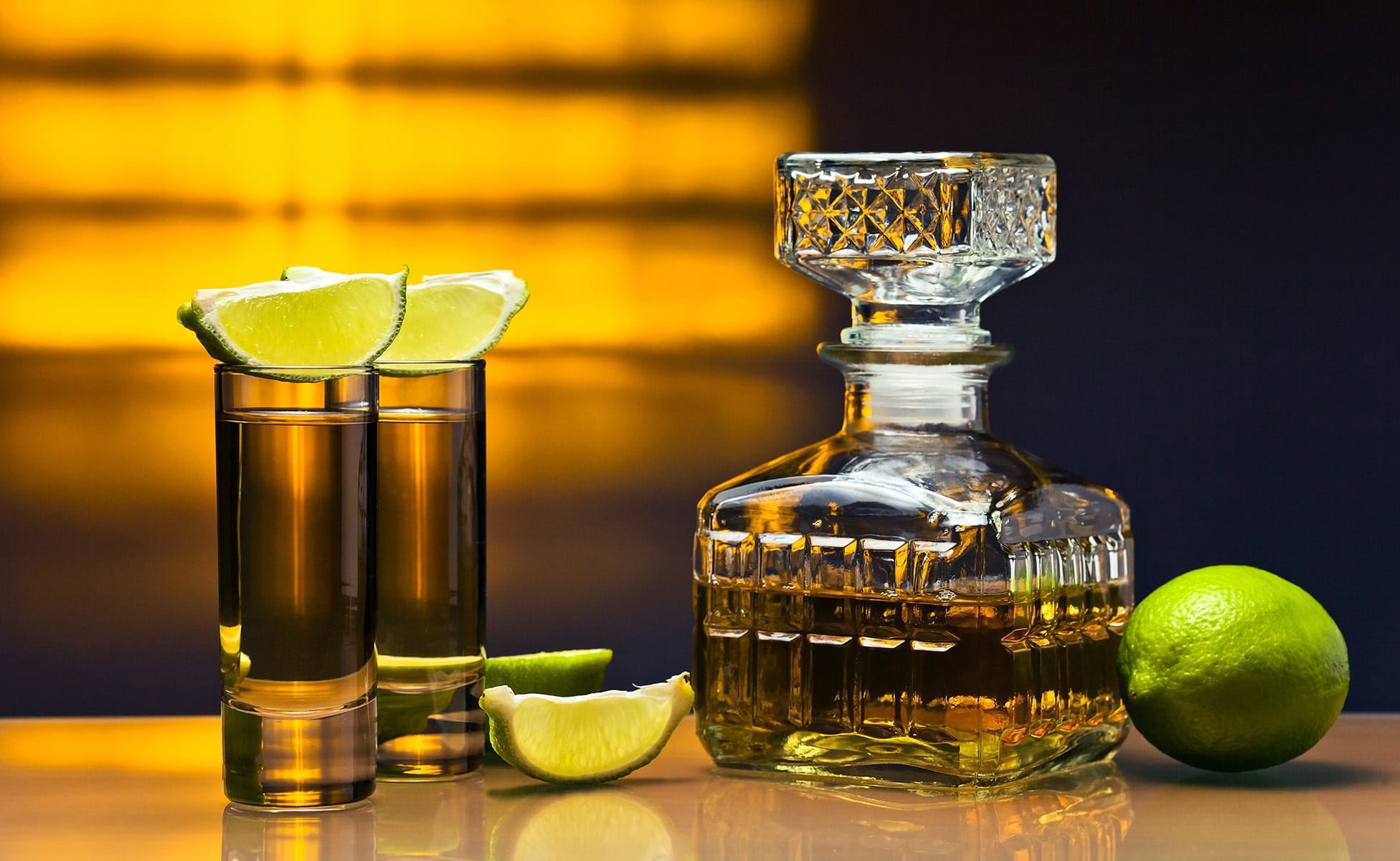Tequila CJ Launcher- What You Need To Know
When you're looking to get back into a beloved online world, like that of City of Heroes, getting the game up and running can sometimes feel like a bit of a puzzle. It's about finding the right tools to make everything click, and for many players, that has often meant looking at launchers, which are essentially programs that help you start your game. These little helpers, you know, handle the initial setup and sometimes even keep your game updated, making sure you can get into the action without too much fuss.
There's been a lot of chat, so, in various player communities, about the different ways folks get their game going, especially when it comes to older titles that have seen a resurgence. One particular name that often comes up in these talks is "Tequila," which is a launcher some people use to play City of Heroes. It's almost a familiar sight for those who have been around the game for a while, providing a way to connect to the servers and get into the action, more or less.
This discussion, so, is about shedding some light on "Tequila CJ," a specific version or perhaps a common way people refer to this particular piece of software. We'll look at what it does, how it works, and some of the things players have experienced with it, including its quirks and the reasons why some have moved on to other options. It's really about understanding the tools people use to get their virtual adventures going, and what that means for their playtime.
Table of Contents
- What is Tequila CJ, Anyway?
- Setting Up Your Game- The Tequila CJ Way
- Did Tequila CJ Always Work Perfectly?
- Looking Beyond Tequila CJ- Other Options
What is Tequila CJ, Anyway?
When people talk about "Tequila CJ," they are usually talking about a specific piece of software that was once a very common way to get into the game City of Heroes. It's a program that acts as a kind of gateway, allowing players to connect to the game's servers and start playing. Think of it like a special front door for your virtual city, where you need this particular key to get in. For a long time, it was the go-to choice for many who wanted to revisit their custom-made heroes and villains, a place where, you know, all those hours of character creation were stored.
This launcher, so, was designed to handle the initial game files and keep them in order on your computer. It’s pretty much a utility that manages the game's core components, ensuring everything is in its proper place before you hit the play button. Without something like this, getting the game to run smoothly could be a lot more complicated, perhaps even requiring a lot of manual work that most players wouldn't want to bother with. It was, in a way, a necessary helper for many years.
It’s worth noting that when folks say "Tequila CJ," they're referring to a particular iteration or common usage of this tool. It was, after all, quite popular for a time, letting players access the vast world of City of Heroes. The idea behind it was to make the process of playing the game as straightforward as possible, taking care of the technical bits so you could focus on the fun parts. It's like having a helpful assistant for your game setup, more or less.
How Tequila CJ Helps You Start Playing
The main purpose of a program like Tequila CJ is to get the game files onto your computer and then make sure they are ready to go. When you wanted to play City of Heroes, you would typically download the game files, which are the actual pieces of the game, and put them in a specific spot on your computer, like a folder named "c:\games\city of heroes." The Tequila CJ program would then take these files and prepare them for you, ensuring they could talk to the game servers.
This setup process, you know, is pretty important because games often need a lot of different pieces to work together. A launcher like Tequila CJ handles that coordination. It’s the thing that makes sure all the necessary bits and pieces are in place, so when you click to start the game, everything just works. It’s about organizing the digital stuff so the game can come to life on your screen. It also includes those text files for settings, which are, you know, quite important for how the game behaves.
For a long time, if you were playing City of Heroes on a Windows computer, Tequila CJ was the usual way to get things going. There was a different tool, called Island Rum, for people who used Mac computers, which is that, kind of, a similar idea but for a different type of machine. So, Tequila CJ was very much a Windows-centric tool, helping players with their game access on that particular operating system. It basically made sure your game was where it needed to be and ready to run.
Setting Up Your Game- The Tequila CJ Way
Getting City of Heroes running with Tequila CJ usually started with getting the Tequila program itself. You would download this program, and then you would go through some simple steps to put it on your computer. It would ask you where you wanted the game files to live, and you'd pick a spot, like that "c:\games\city of heroes" folder we talked about. This initial setup is pretty much the foundation for getting everything else working.
Once the Tequila CJ program was on your computer, you then needed to get the actual game files. Sometimes, people would use a torrent download, which is a way of getting large files from many different sources at once. After getting those game files, you would then, in a way, direct Tequila CJ to where they were located. It's like telling the launcher, "Hey, here are the game pieces, now make them work!" This two-step process was pretty standard for a while.
For those who already had City of Heroes installed in some form, the process might have involved pointing Tequila CJ to their existing game files. This could sometimes be a little tricky, especially if the previous setup was, you know, a bit messy. The idea was to integrate Tequila CJ with what was already there, rather than starting completely from scratch. It was about making the launcher aware of your current game situation, more or less.
Getting Tequila CJ Ready for Action
After you had the Tequila CJ program and the game files in place, the next step was to get the launcher to, well, launch the game. This often involved clicking on the Tequila icon, which for some people, was a moment of pure joy. One player even mentioned that whenever they double-clicked their Tequila CJ icon to get the launcher up, they would exclaim "Tequila!" in that very specific way people do when they say the word in a celebratory fashion. They even made a friendly wager with their partner that they weren't alone in this quirky habit, which, you know, is pretty funny.
The launcher's job was then to connect to the game servers and get you into the character selection screen, where all those millions of hours of customization are housed. It's where your unique heroes and villains live, waiting for you to pick them and jump into action. Tequila CJ was the bridge to that part of the game, making sure you could access your beloved creations and the world they inhabit. It was, in some respects, a very personal connection to the game.
This process of getting the launcher up and running was, for many, a regular part of their gaming routine. It was the moment before the adventure truly began, the last step before stepping back into the virtual streets of Paragon City or the Rogue Isles. The success of Tequila CJ in this role meant that players could consistently get back to their heroes, which is that, the whole point of having a launcher in the first place, really.
Did Tequila CJ Always Work Perfectly?
While Tequila CJ served its purpose for a good while, it wasn't always a smooth ride for everyone. Some players experienced issues, and these problems could sometimes be quite frustrating. One common complaint was about the speed of downloads. Apparently, the servers that were hosting the content for Tequila CJ sometimes couldn't handle the sheer number of people trying to get files, and as a result, the download speeds were, well, really, really slow. This meant waiting a very long time for game updates or initial downloads, which is never fun.
Another issue that came up was about the launcher itself not being recognized as a safe program by some computer systems. Tequila CJ wasn't "signed," which means it didn't have a special digital stamp that tells your computer it's from a verified source. This lack of a signature, coupled with the fact that it hadn't been updated in years, meant that antivirus programs or security software on your computer might flag it as suspicious. This could lead to what are called "false positives," where your computer thinks something is a threat when it's actually just a game launcher. It's almost like your computer being overly cautious, in a way.
Sometimes, these problems were big enough that people had to take drastic steps. For instance, if someone had an issue with Tequila CJ, they might have to remove everything related to the game from their computer, including deleting specific entries in the computer's registry, which is a kind of internal database. Then, they would try a completely fresh installation of the game client and then the game itself, hoping to clear up whatever was causing the trouble. This suggests that the problems with Tequila CJ could be, you know, pretty deeply rooted for some users.
Common Issues with Tequila CJ
Beyond the slow downloads and the security warnings, there were other little quirks that players might have run into with Tequila CJ. Sometimes, people would wonder if they still needed the Tequila launcher even after they had downloaded another one, like the Homecoming launcher. This kind of confusion shows that the setup process could be a bit unclear for some, especially if they were trying to switch between different tools for the same game. It's like having two different keys for the same door and not knowing which one to use, or if you need both, really.
The older nature of Tequila CJ also meant that it wasn't always as intuitive as newer programs. It hadn't received updates in a very long time, which means it might not have been keeping up with changes in computer operating systems or network conditions. This could lead to a less smooth experience compared to more modern alternatives that are regularly maintained. It's a bit like using an older piece of equipment when newer, more efficient models are available, in some respects.
These kinds of issues, so, led many players to look for other ways to get into City of Heroes. While Tequila CJ had been a faithful companion for many, its limitations and the problems it presented encouraged the community to explore and develop other solutions. It's a pretty common story in the world of older games, where community efforts often step in to improve the player experience when official support might not be there anymore.
Looking Beyond Tequila CJ- Other Options
Given the challenges some players faced with Tequila CJ, the community naturally started looking for better ways to get into the game. This led to the creation and adoption of alternative launchers that aimed to provide a smoother, more reliable experience. One of the most prominent of these alternatives is the Homecoming launcher, which has become a very popular choice among City of Heroes players. It's like finding a new, more efficient path to your destination when the old one becomes a bit bumpy.
The idea behind these newer launchers was to address the very issues that made Tequila CJ a bit of a headache for some. They were built with modern considerations in mind, aiming to make downloads quicker, installations simpler, and overall use more straightforward. This focus on player convenience was a big draw, as nobody wants to spend more time troubleshooting their game than actually playing it, which is that, a very fair point, really.
So, if you were experiencing slow downloads or strange security warnings with Tequila CJ, you might have been told to try something else. The community pretty much rallied around these newer tools, sharing advice and helping each other make the switch. It's a testament to how dedicated players can be when it comes to keeping their favorite games alive and accessible, even when the original tools start to show their age.
The Homecoming Launcher- A Different Path from Tequila CJ
The Homecoming launcher, often referred to as HC launcher for short, came about as a direct response to the needs of the City of Heroes community. It was, internally, given the codename "Project Hangover," which is a pretty clever nod to the game's past and the idea of getting things cleaned up and working well again. This new launcher was intended to be a more polished and user-friendly option for players, moving beyond the limitations of older tools like Tequila CJ.
Many players found that the Homecoming launcher simply worked better for them. It was designed to handle things like patches and updates pretty intuitively, meaning it could figure out what needed to be downloaded and installed without a lot of manual input from the user. This kind of automation is a big improvement, as it takes away some of the technical burden from the player, letting them focus on playing rather than maintaining their game files. It's almost like having a smart assistant for your game, you know.
When people asked if the Homecoming launcher included all the files necessary to run City of Heroes, the answer was generally yes. This meant that you often didn't need to keep Tequila CJ around once you had switched over. The Homecoming launcher was built to be a comprehensive solution, providing everything you needed to get into the game without relying on other, older programs. This made the setup process much cleaner and less prone to conflicts, which is that, a big plus for many players, really.
What About Tequila CJ's Place in History?
Tequila CJ, despite its challenges and the eventual rise of newer alternatives, holds a significant spot in the history of City of Heroes' continued life. For a considerable period, it was the primary way many players kept their connection to the game alive, allowing them to step back into the shoes of their heroes and villains. It was, in some respects, a foundational piece of software that enabled the community to thrive even after the original game servers went offline. Its role was pretty important for a long time.
The discussions and issues surrounding Tequila CJ also highlight the dedication of the City of Heroes player base. When a tool wasn't working as well as it could, or when new needs arose, the community often stepped up to create and support better solutions. This collective effort to improve the game experience is a hallmark of passionate fan communities, and Tequila CJ's story is a part of that larger narrative. It's a story of adaptation and perseverance, you know.
So, while newer, more efficient launchers like Homecoming have largely taken over, Tequila CJ remains a recognized name for those who were part of the game's journey. It represents a particular era in the game's life, a time when players used whatever tools were available to keep their beloved virtual world going. It's a reminder of how technology and community efforts intertwine to keep cherished experiences alive, even if the tools themselves become a bit outdated. It's almost like a historical artifact in the game's ongoing story.
This article looked at "Tequila CJ," a launcher for City of Heroes, explaining what it is and how it helped players get into the game. We covered the setup process, including placing game files and getting the launcher ready. We also discussed some of the common issues players faced, such as slow downloads and security warnings, and how these led to the exploration of alternative options. Finally, we touched upon the Homecoming launcher as a popular replacement and reflected on Tequila CJ's historical place within the City of Heroes community.
Article Recommendations



Detail Author:
- Name : Deron Lowe
- Username : bernier.brennon
- Email : kathryn25@borer.com
- Birthdate : 1980-06-19
- Address : 753 Pacocha Run Terrybury, RI 82202
- Phone : 513.209.9178
- Company : Zieme, Dietrich and Herzog
- Job : Agricultural Crop Worker
- Bio : Dolor enim perspiciatis odit ad voluptatem pariatur. Id et praesentium ut consectetur ipsa et ratione. Eum blanditiis facilis ab excepturi velit nam. Corrupti quia tempora excepturi qui quisquam.
Socials
twitter:
- url : https://twitter.com/auer1988
- username : auer1988
- bio : Provident debitis labore quidem in. Omnis sint ipsa incidunt consequatur est.
- followers : 5581
- following : 2635
tiktok:
- url : https://tiktok.com/@alba.auer
- username : alba.auer
- bio : Omnis ut nemo et fugiat rem rerum. Porro est ipsa est eos et.
- followers : 4811
- following : 1108
instagram:
- url : https://instagram.com/albaauer
- username : albaauer
- bio : Qui harum est molestias. Sed quas nobis incidunt ipsum commodi qui consequatur.
- followers : 6285
- following : 1237